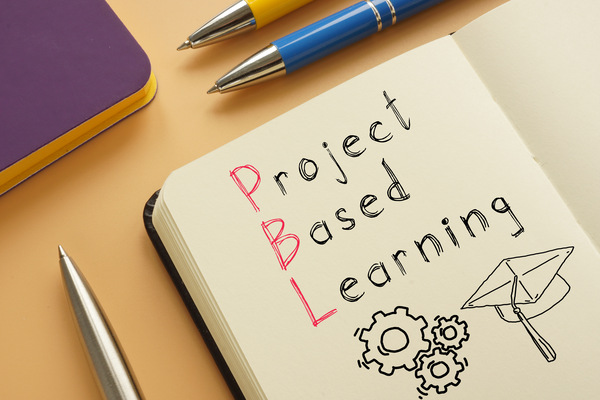12 Outdoor Activities to Do With Your Kids
Encouraging your kids to venture outside and breathe in fresh air is super important for their mental development and emotional well being. Every child should enjoy frolicking in the great outdoors or taking part in a fun outdoor activity – especially if it’s a gorgeously sunny day.
However, getting them outdoors in the first place is easier said than done. Isolation at home has made us all far too comfortable staying indoors and turning to electronics or screens for entertainment.
But enough is enough! It’s time to plan some outdoor activities for your kids and find some fun and excitement in new creative ways. Whether it’s an outdoor activity in your own backyard or a special family outing, here’s 12 activity ideas you can try.
Outside the home…
Climb a treetop course
Climbing along a treetop adventure course like those you find at places like The Adventure Park is a fantastic form of outdoor exercise for children. What’s more, it’s an exciting day out for the entire family! With exhilarating zip lines and challenging rope climbs, a treetop adventure course is a perfect idea for a fun-packed day that gets the smiles beaming and adrenaline pumping.
Learn and play at the zoo
Visiting the local zoo is a staple family day out that all kids will enjoy. Discovering diverse species and learning about nature will spark their curiosity and help them learn about the all-important struggles of conservation and animal welfare. A lot of zoos hold special events too, so choose a date that offers fun opportunities for playtime! Pack a delicious picnic full of treats and goodies to enjoy at lunchtime too.
Thrilling Driveway Skateboard Lessons
Driveway skateboard lessons are one of the best outdoor activities for kids, combining fun and skill development. Under the guidance of an experienced instructor, kids learn the basics of balance, control, and safety, right in the comfort of their own driveway. It’s a fantastic way for youngsters to stay active, build confidence, and enjoy the fresh air while mastering a new skill.
Play in the sand at a beach
If you’re close to a beach and the sun is beaming, head to the shore for a spontaneous day of frolicking on the sand. Find the perfect spot and settle down for a day of relaxing in the sun. It’s also a great opportunity to teach beach safety to ensure it’s always a safe outing. Remember the bucket and spade to build sandcastles and take a bathing suit for the kids to splash in the waves. There’s always room for a well-deserved ice cream too.
Clean the neighborhood
You might be surprised how enthusiastic your child is for helping the community. So why not take them on a spirited walk through the neighborhood to clean up the area and pick up the garbage littering the streets? It’ll teach them about environmental concerns and develop their understanding of having community-minded morals.
Visit a new state
Crossing state lines to explore new places is both exciting and educational, as it helps kids appreciate that there’s a whole world beyond their local community, and gives them insights into the wider makeup of the country they call home. Of course you can factor in a fun destination as part of your journey, including some of the aforementioned recommendations. For instance, heading to an amusement park like Cedar Point in Ohio will give you a great mix of thrilling rides and the great outdoors. And with discount tickets to Cedar Point available, it can be affordable too.
Explore a historical area
The majority of towns and cities will have some form of history, so make the most of the local culture by exploring any historical sites, landmarks and monuments. You’re never too young to learn about important historical events and figures, so why not reverse time for the day and find appreciation for where we come from and how fortunate we are nowadays?
Go on a Safari
There’s something inherently captivating about being out in the vast wilderness, immersed in a world far removed from bustling city life. Each moment brings an unpredictable surprise, but with the right precautions, everything will be safe for your children. If you wish to experience this magical journey with your kids, why not take a safari tour? You’ll be rewarded with unforgettable sights and experiences.
Seek thrills at an amusement park
Depending on the age and height of your child, an amusement park offers tonnes of family laughs and thrills to make a day truly unforgettable. Whether it’s a ride on a spooky ghost train, a splashdown on a log flume or a spin on a carousel, an amusement park has something to entertain everyone. Plus, roller coasters are an opportunity for us big kids to scream and play too.
In the backyard…
Find treasure on a scavenger hunt
As an excitable youngster, a scavenger hunt was always one of the most thrilling activities to look forward to. It’s one of the many fun activities a family can do close to home. You can keep them entertained for hours! Best of all, your backyard is the perfect spot for hiding treasure and setting a trail for them to explore. Make it as hard or as easy as you like and choose any special prize for them to find at the end of their hunt. Scavenger hunts can also develop team building skills.
Compete in a water gunfight
This is the ideal option for a beautifully sunny day that requires some cooling off. Get yourself to a local store and buy a selection of water guns for the ultimate afternoon of family fun. You can set up a few carnival-style games or simply start a competitive water gunfight. Just make sure windows and doors are closed as you’re likely to get soaked!
Try out a new sport
For an activity that gets the heart racing, try out a new sport in the backyard to see if any new interest is sparked. It’s always important for your child to find a hobby they love, so why not spend a free afternoon dabbling with a fun game of backyard soccer, basketball, or tennis? It’s a great way to keep active throughout the summer and there’s nothing wrong with a spot of healthy family competition too!
Practice arts and crafts outdoors
Kids are creative and loves arts and crafts, it might be a nice idea to bring their art project outside. This is an even better idea if you don’t want any more unnecessary mess taking over the house. Whether it’s drawing, painting, or sculpting, you can set up an arts and crafts corner in the shade and let them get messy till their heart’s content. Plus, there’s nothing like the sights and sounds of the great outdoors to inspire creativity!
Set up an obstacle course
If visiting an outdoor adventure park isn’t an option for you, why not create your very own obstacle course in your backyard? Use a variety of items around the house and make a fun course for them to dip, dive, crawl, and jump their way through. You can even make it competitive by setting a timer and making it a family challenge to see who can complete the course in the fastest time.
Camp overnight in the backyard
To extend the fun through the night, camping in the backyard can be a wonderfully exciting activity for your kids. Pitch a tent and make it ultra-cozy with pillows and blankets for a snug night’s sleep. You can even build a campfire beforehand to roast some delicious homemade s’mores as the sun sets. Then as dusk settles, you can watch the stars in the night sky together with a steaming hot chocolate.







